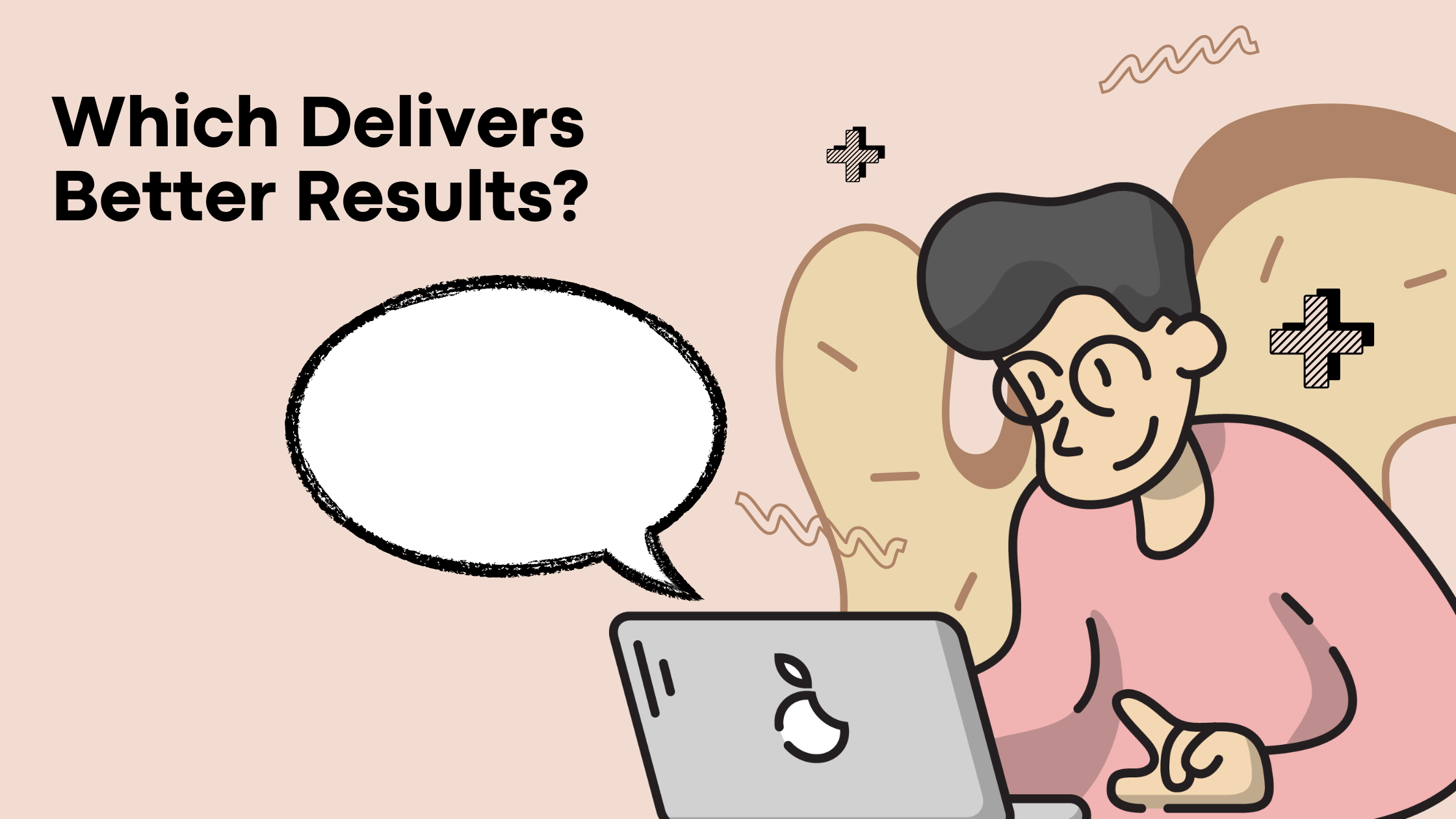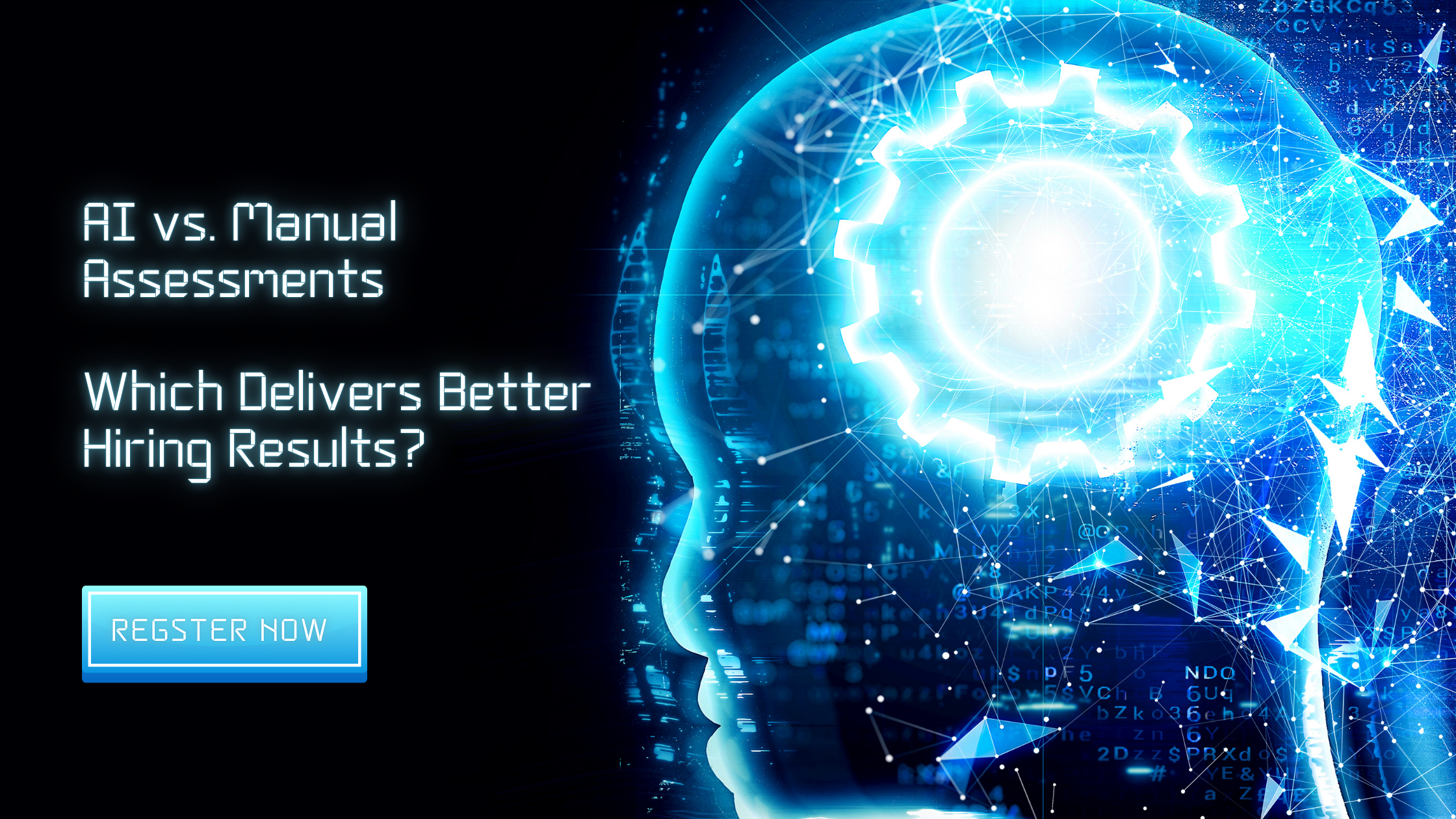AI vs. Manual Assessments: Which Delivers Better Hiring Results?
Hiring the right talent is a critical challenge for organizations across industries. Traditional manual assessments have long been the standard for evaluating candidates, but with advancements in artificial intelligence (AI), companies now have access to automated hiring solutions. The debate over AI vs. manual assessments continues as recruiters seek the most effective methods to identify top talent. This blog explores the key differences between AI and manual assessments, analyzing their impact on hiring accuracy, efficiency, and fairness.
The Role of Assessments in Hiring
Candidate assessments are crucial in determining job fit, skill level, and cultural compatibility. Whether manual or AI-driven, these assessments help companies streamline their hiring processes and reduce turnover rates. However, the effectiveness of each method varies significantly based on the approach taken.
Manual Assessments: The Traditional Approach
Manual assessments involve human-driven evaluation methods such as in-person interviews, written tests, and case studies. These assessments are conducted by HR teams, hiring managers, or external consultants.
Advantages of Manual Assessments
- 1. Personalized Evaluation - Manual assessments allow recruiters to engage with candidates on a personal level, gaining deeper insights into their responses.
- 2. Contextual Understanding - Human assessors can consider nuances such as body language, communication skills, and situational reactions.
- 3. Flexible Questioning - Interviews and case studies enable recruiters to ask follow-up questions tailored to each candidate's responses.
Limitations of Manual Assessments
- 1. Time-Consuming - The process requires scheduling, conducting, and reviewing multiple rounds of interviews, leading to longer hiring timelines.
- 2. Subjective Decision-Making - Human biases can influence assessments, leading to inconsistent hiring decisions.
- 3. Scalability Issues - Manual assessments become inefficient when evaluating a large volume of candidates, limiting the speed of hiring.

AI-Powered Assessments: The Future of Hiring
AI-driven hiring solutions leverage machine learning, natural language processing, and data analytics to assess candidates more efficiently. A pre-employment online assessment test powered by AI can analyze candidate responses in real time and provide objective insights into their capabilities.
Advantages of AI Assessments
- 1. Speed and Efficiency - AI can evaluate thousands of candidates simultaneously, significantly reducing hiring time.
- 2. Unbiased Decision-Making - AI eliminates human biases by relying solely on data-driven insights.
- 3. Enhanced Predictive Accuracy - AI-based tools assess historical hiring data to predict a candidate's likelihood of success in a given role.
- 4. Scalability - Companies can process large applicant pools quickly without compromising assessment quality.
Limitations of AI Assessments
- 1. Lack of Human Intuition - While AI excels at analyzing structured data, it may struggle to evaluate subjective traits such as cultural fit.
- 2. Initial Implementation Costs - AI-powered solutions require investment in software and integration with existing HR systems.
- 3. Dependence on Data Quality - The effectiveness of AI assessments depends on the accuracy and diversity of the data used for training the models.
Comparing AI and Manual Assessments: Which Delivers Better Results?
1. Accuracy and Fairness
A leadership personality test conducted manually may be influenced by a recruiter's personal perceptions, potentially leading to biased evaluations. AI-powered assessments, on the other hand, use objective scoring algorithms to ensure fair evaluations for all candidates.
2. Speed and Efficiency
Manual assessments require substantial time for scheduling interviews, reviewing applications, and finalizing selections. In contrast, AI-driven pre-employment online assessment tests provide instant results, enabling faster decision-making.
3. Candidate Experience
AI-powered assessments offer a seamless digital experience, allowing candidates to complete evaluations at their convenience. However, manual interviews provide a personal touch, making candidates feel more valued.
4. Cost-Effectiveness
Manual assessments require human resources, increasing costs associated with recruiter time and assessment logistics. AI-powered solutions reduce overhead costs by automating the evaluation process.
The Role of Psychometric Assessments in Hiring
A psychometric assessment tool plays a crucial role in both AI and manual hiring processes. These tools evaluate cognitive abilities, personality traits, and behavioral tendencies to determine job suitability. AI-powered psychometric assessments enhance accuracy by eliminating biases and providing deeper insights into candidate profiles.
Benefits of AI-Driven Psychometric Assessments
- 1. Objective Personality Analysis - AI evaluates personality traits based on data rather than subjective interpretations.
- 2. Faster Processing - Candidates receive instant results, reducing assessment delays.
- 3. Improved Job Matching - AI matches candidates to roles based on personality-job fit predictions.
The Future of AI in Hiring Assessments
As AI technology evolves, its role in recruitment will continue to expand. Future advancements may include:
- 1. AI-Driven Video Interviews - AI will analyze facial expressions and speech patterns to assess communication skills.
- 2. Gamified Assessments - Interactive simulations will enhance candidate engagement and improve evaluation accuracy.
- 3. Real-Time Skill Testing - AI will assess candidates' skills through live coding challenges, project-based tasks, and role-specific simulations.
Conclusion
Both AI and manual assessments have their strengths and weaknesses. While manual assessments provide human insight and personalized evaluations, AI-powered pre-employment online assessment tests offer efficiency, accuracy, and scalability. For organizations looking to enhance hiring outcomes, integrating AI-driven leadership personality tests and psychometric assessment tools into recruitment strategies can significantly improve decision-making processes. The ideal approach is a hybrid model that combines AI's analytical power with human intuition, ensuring the best hiring results for businesses.
